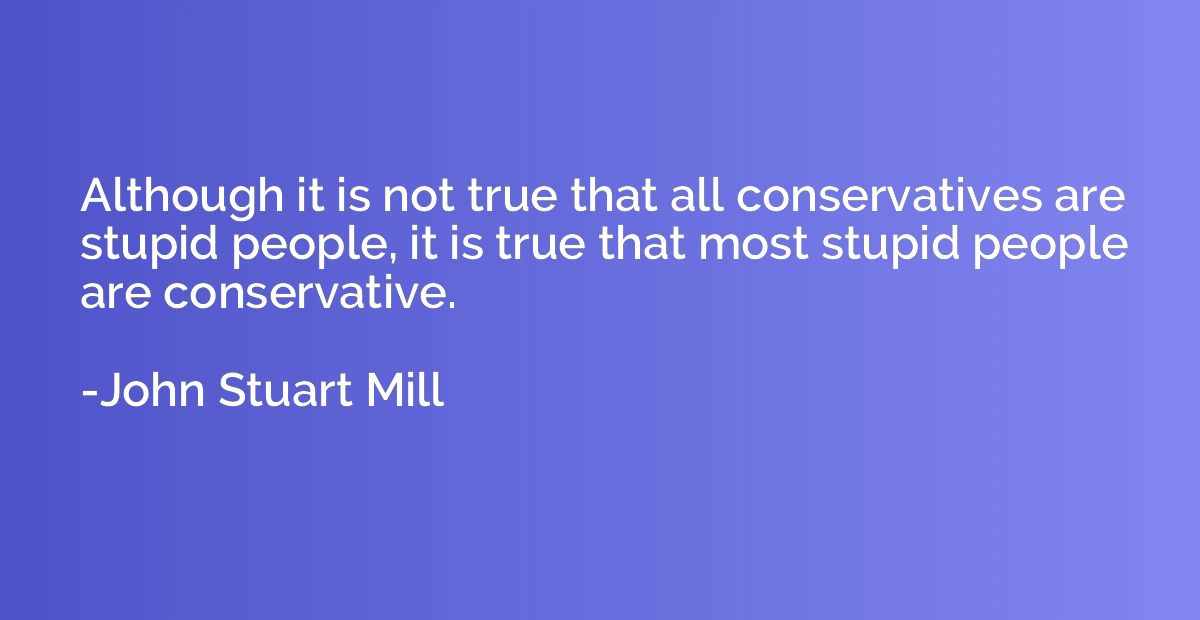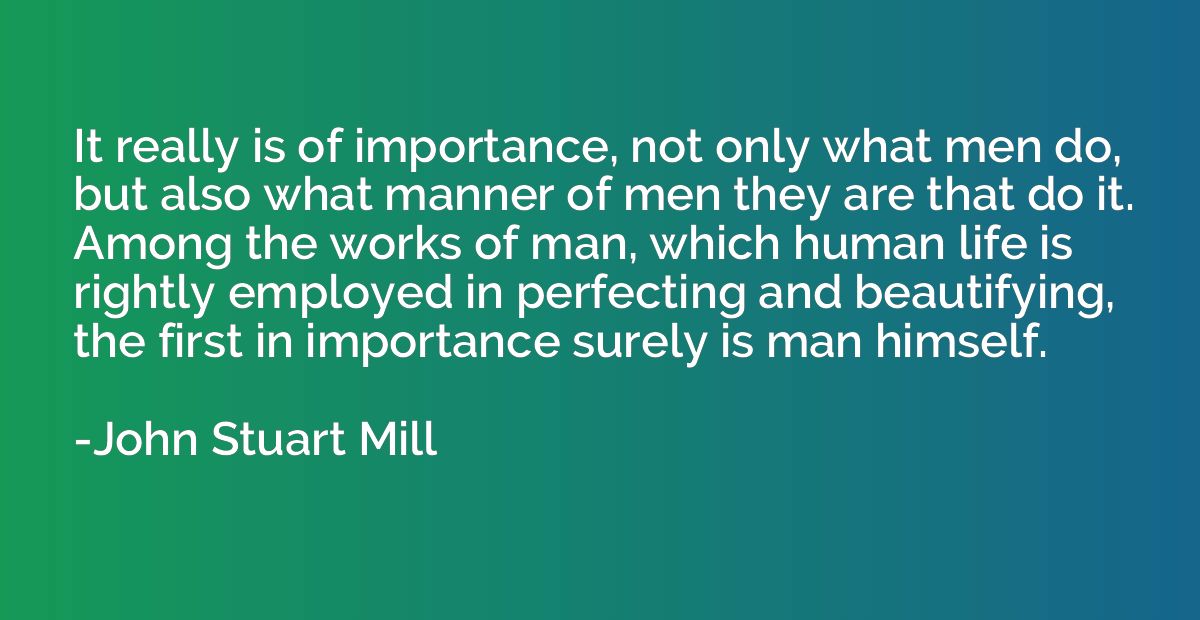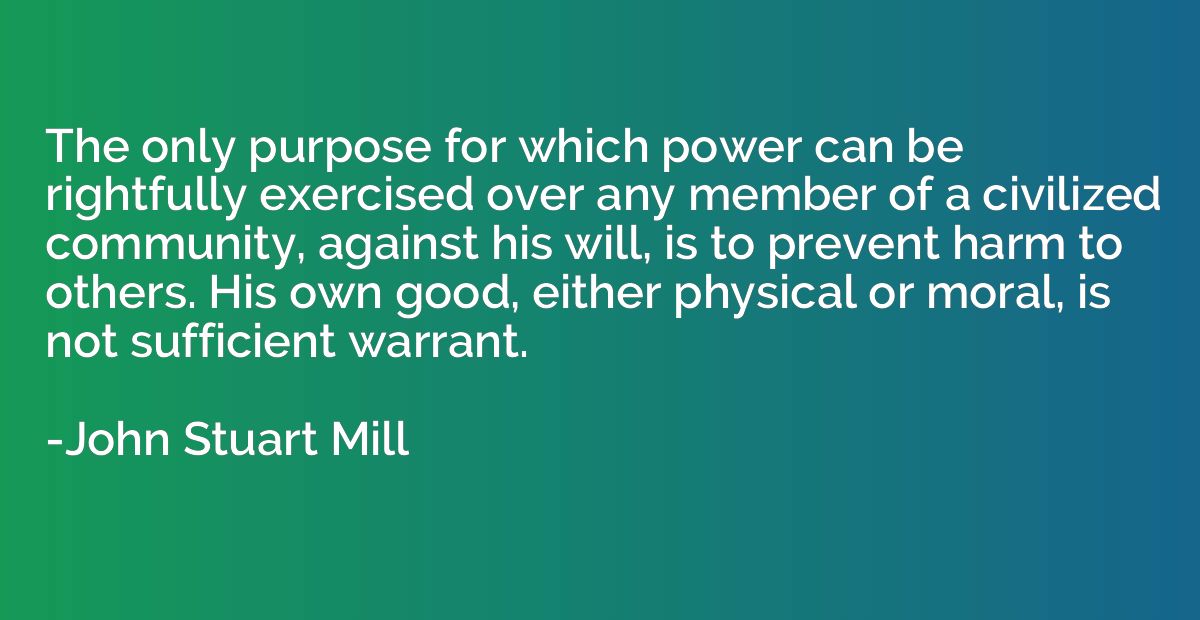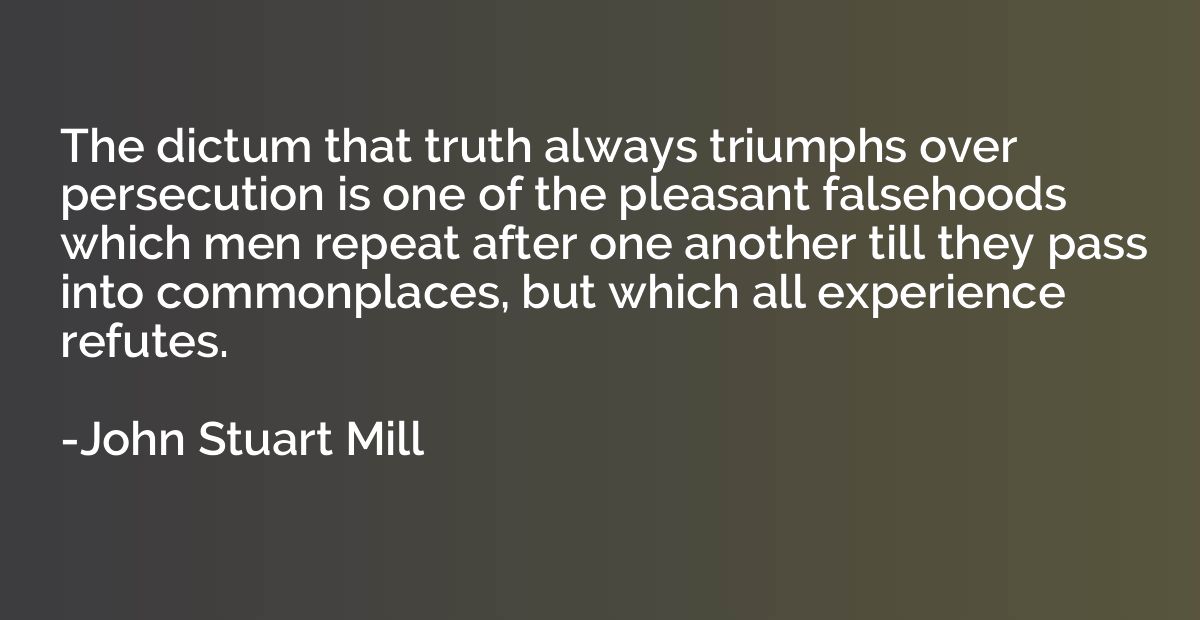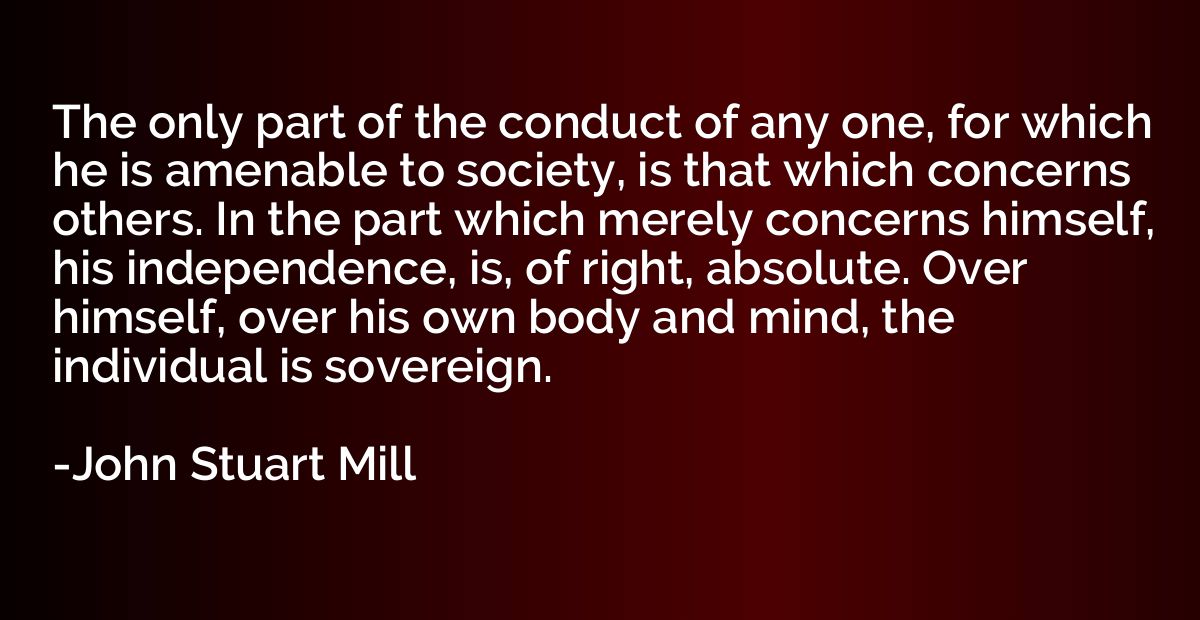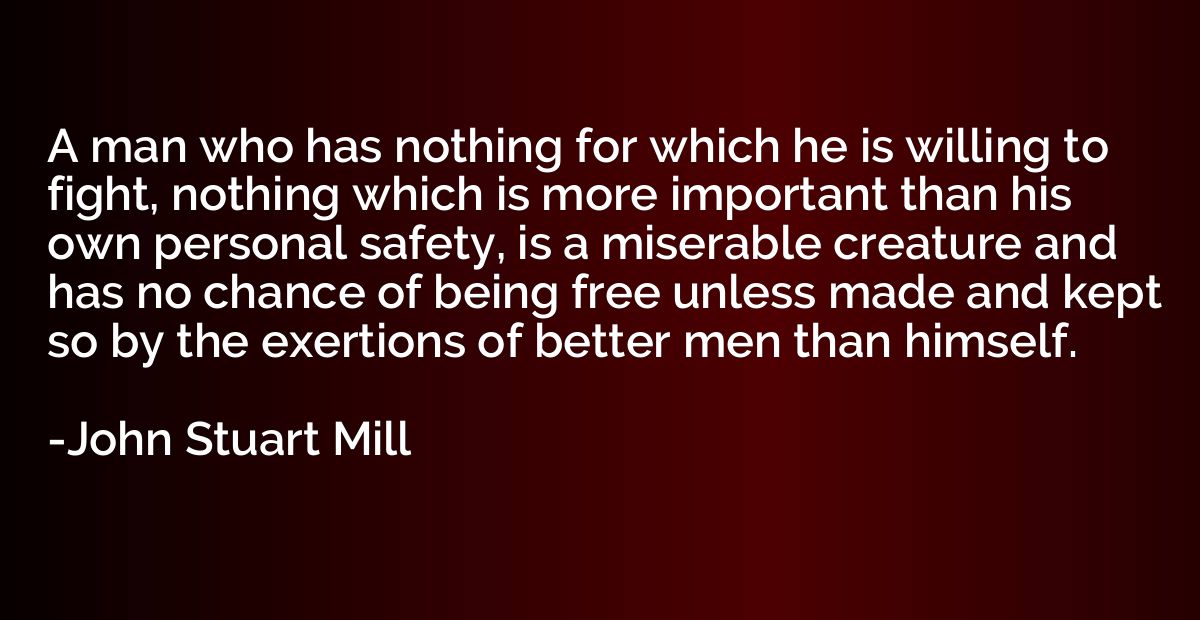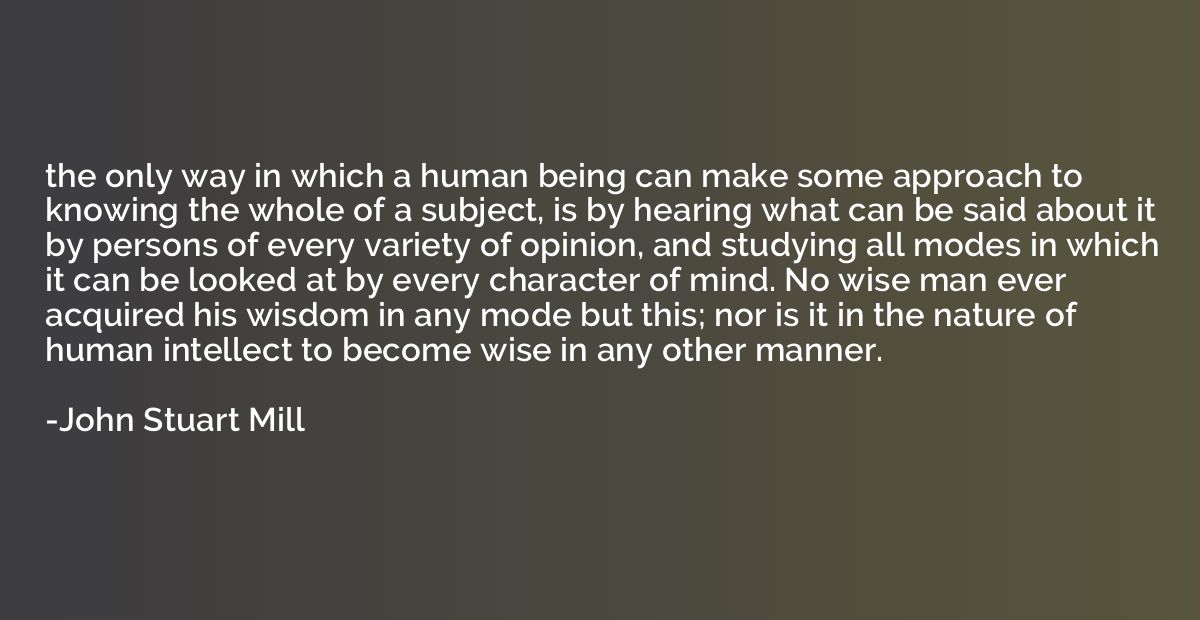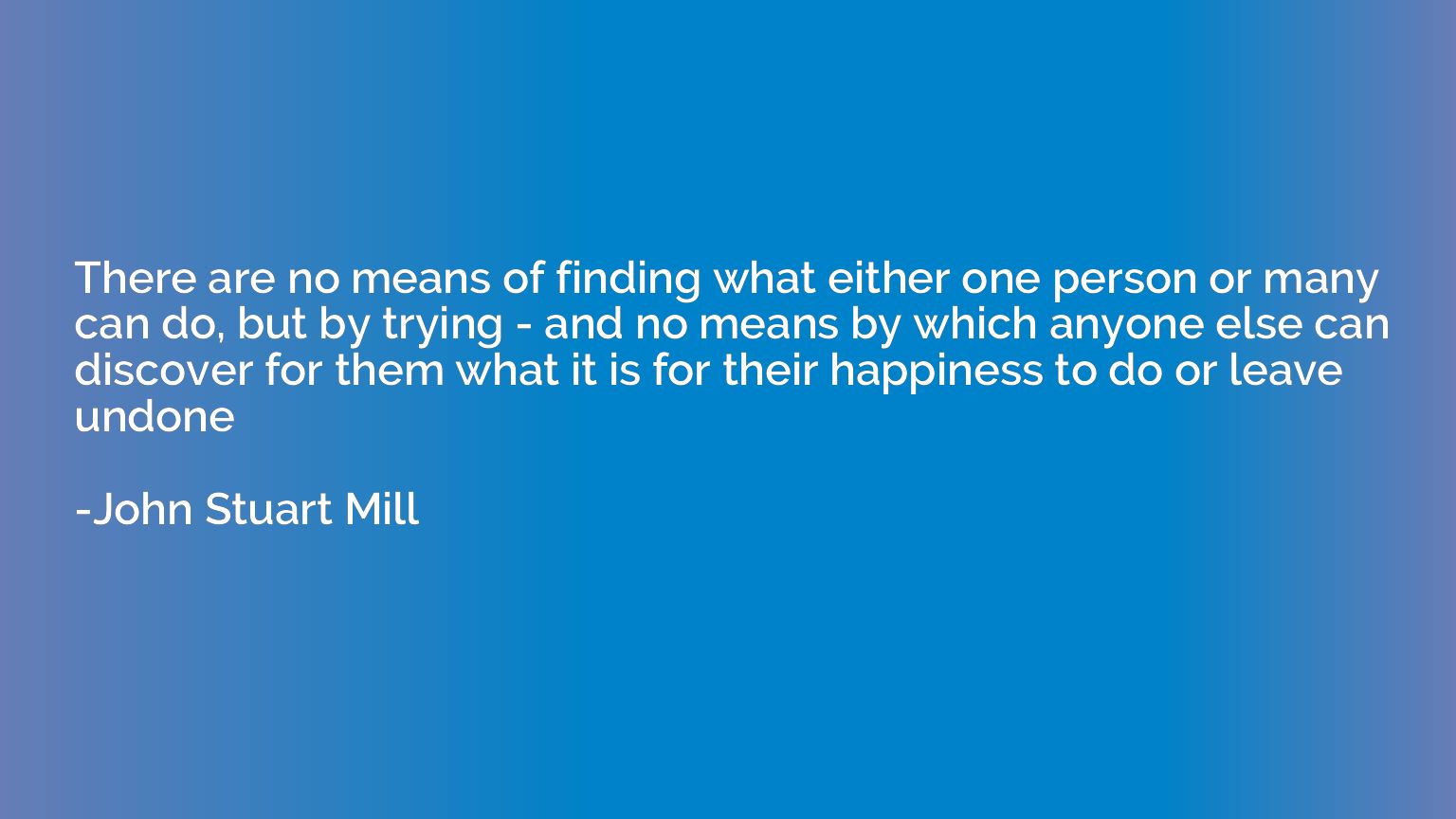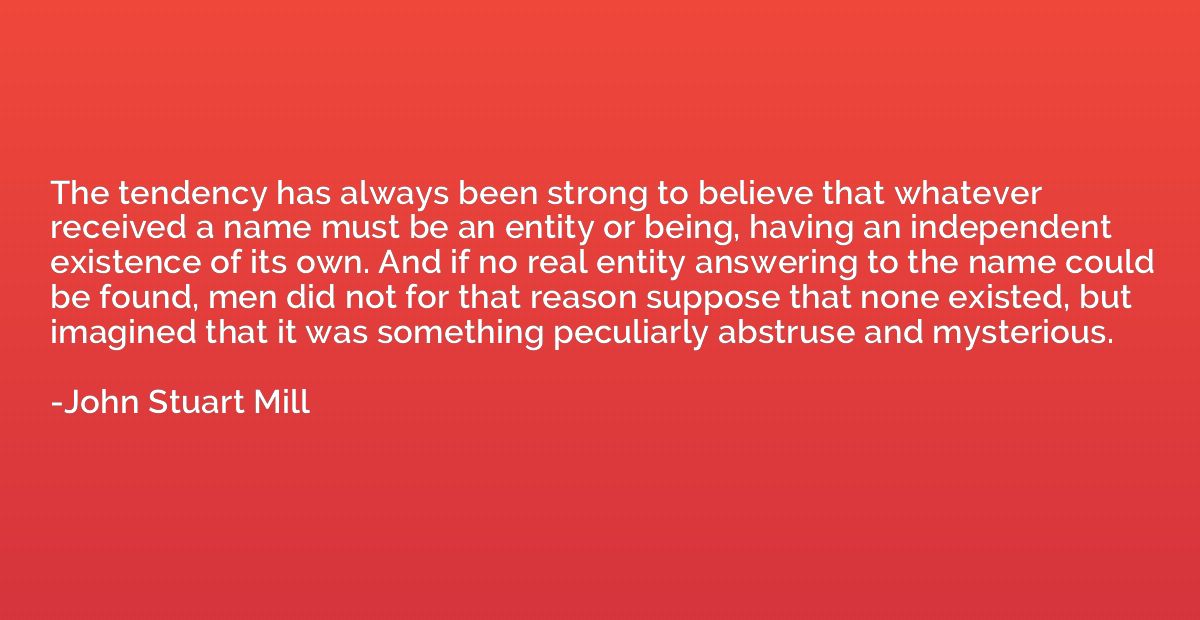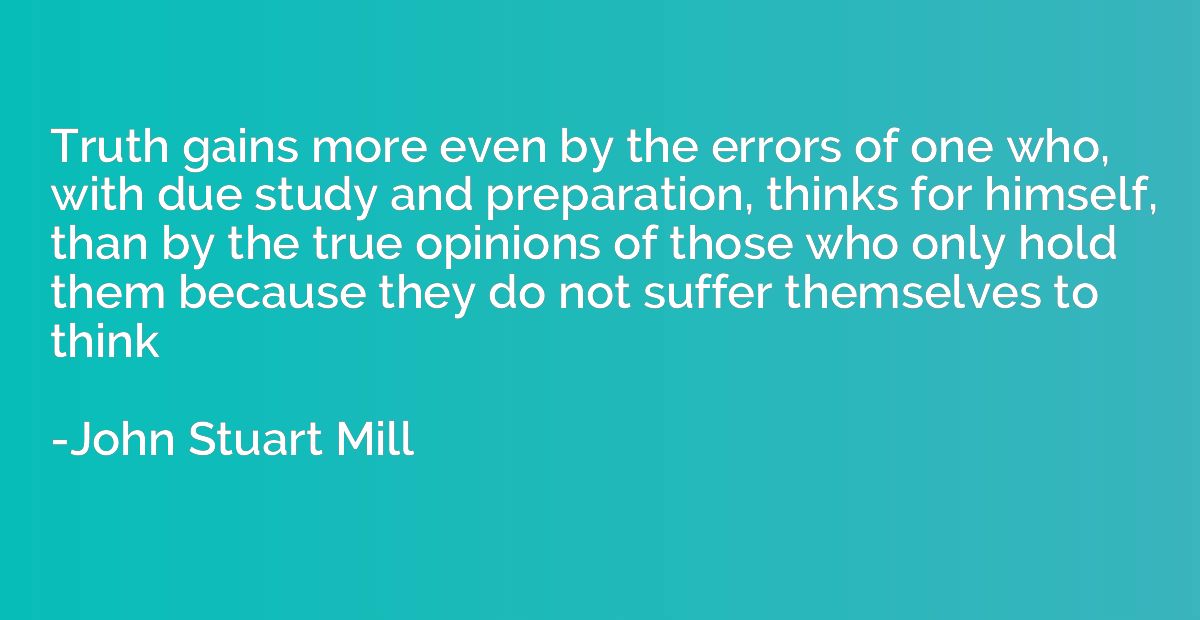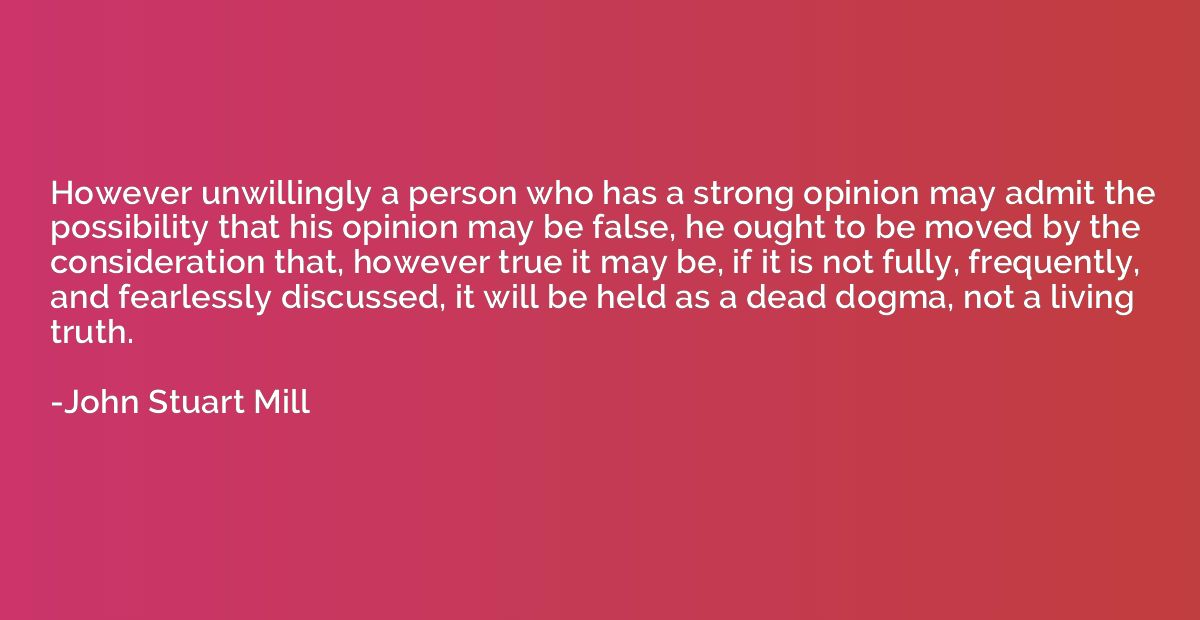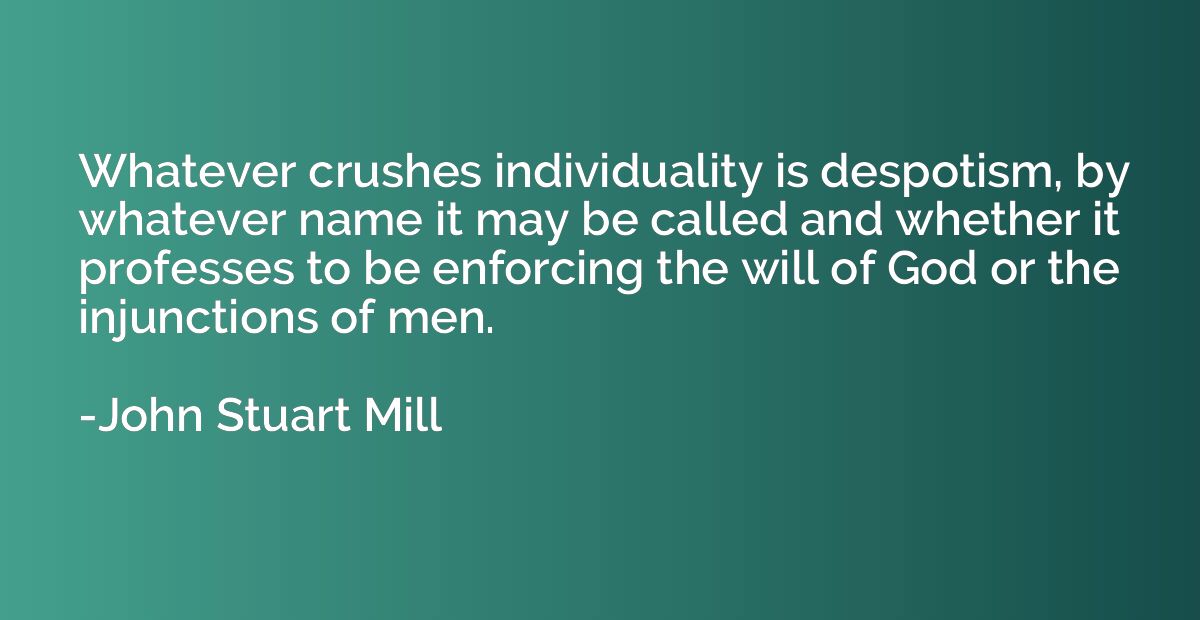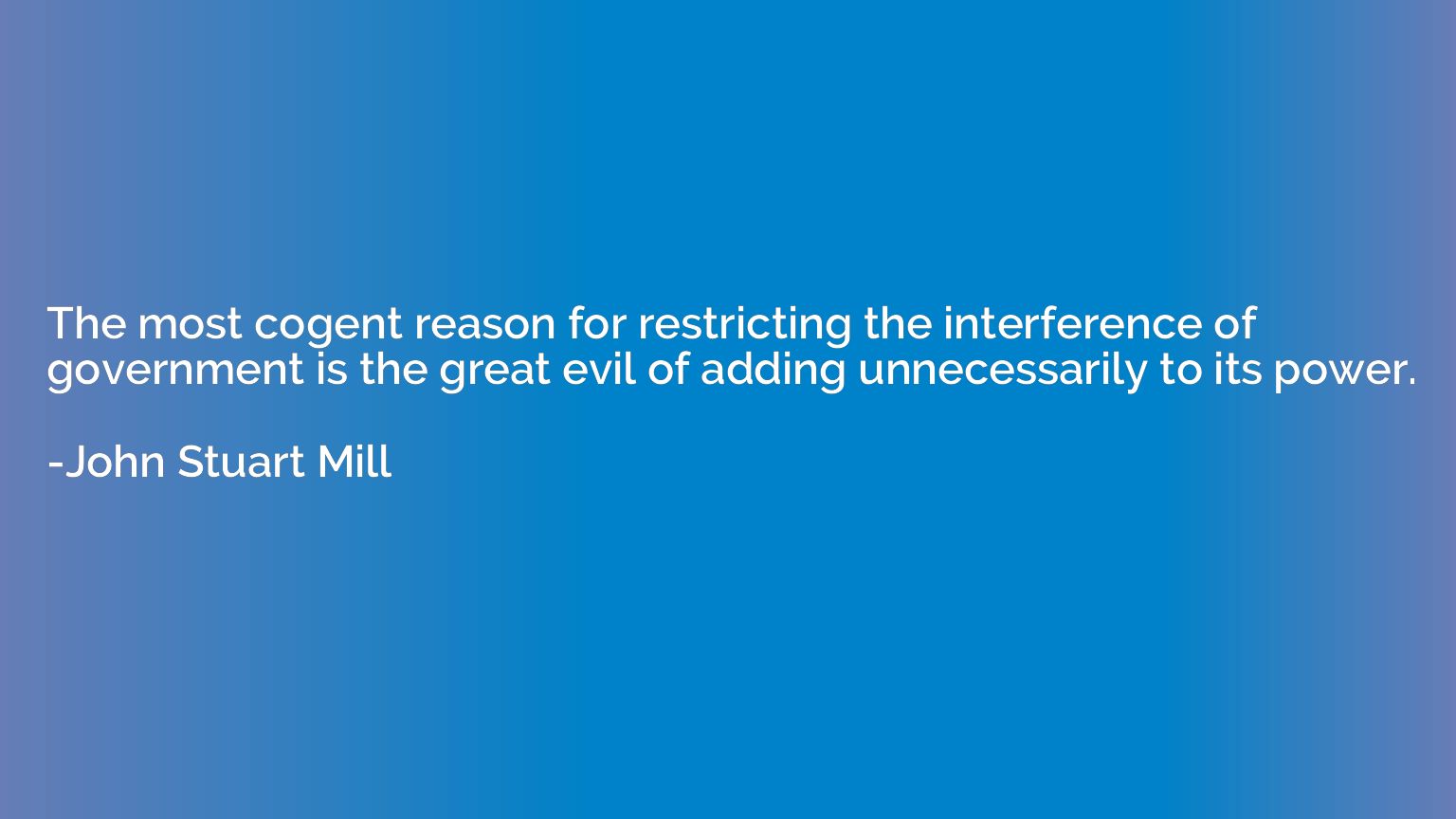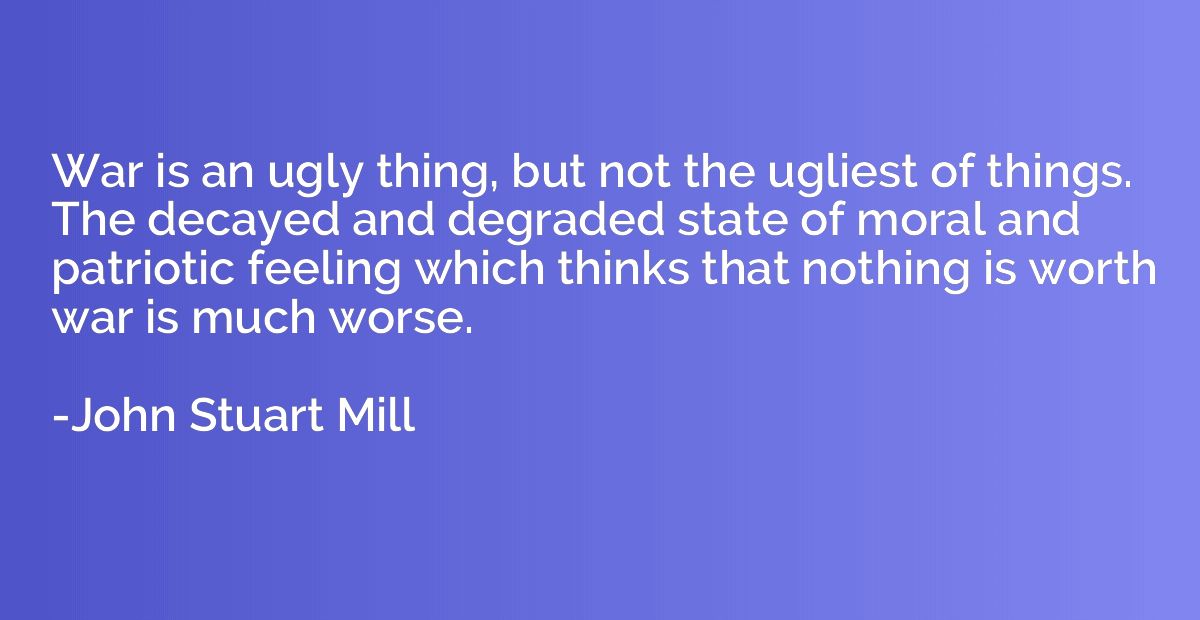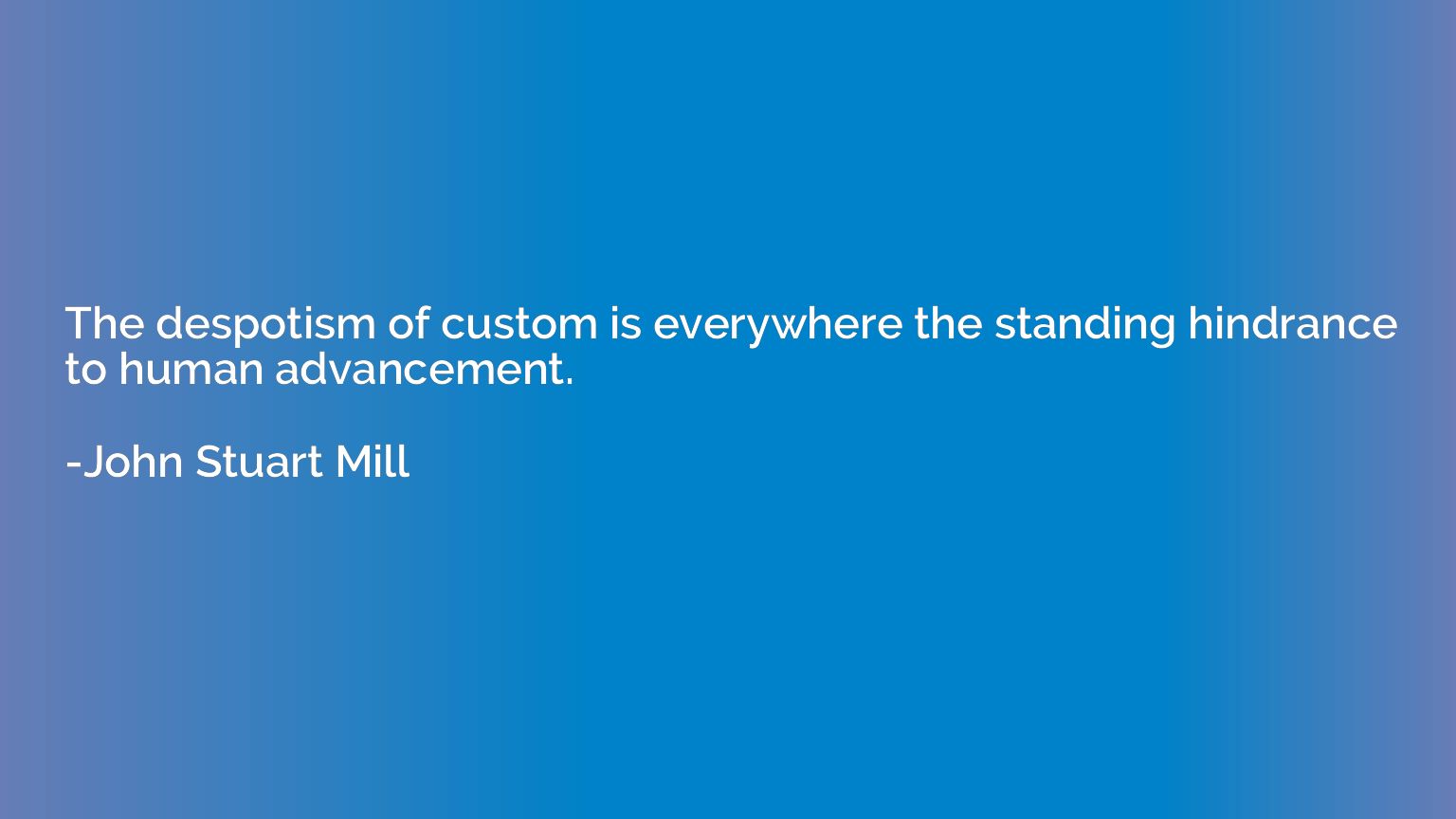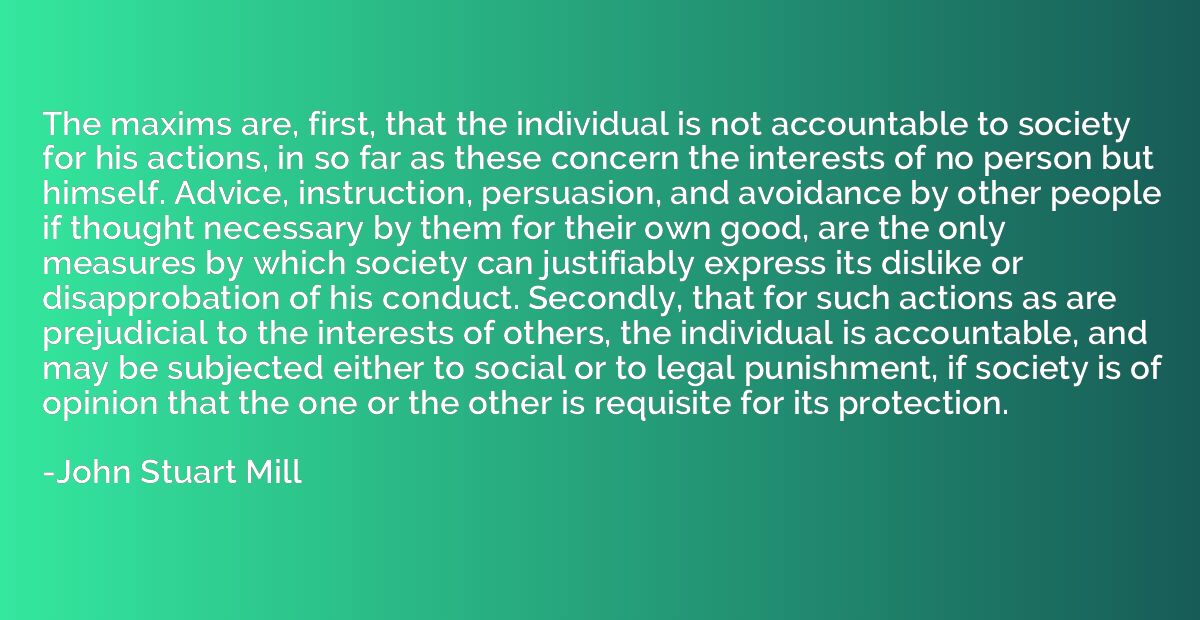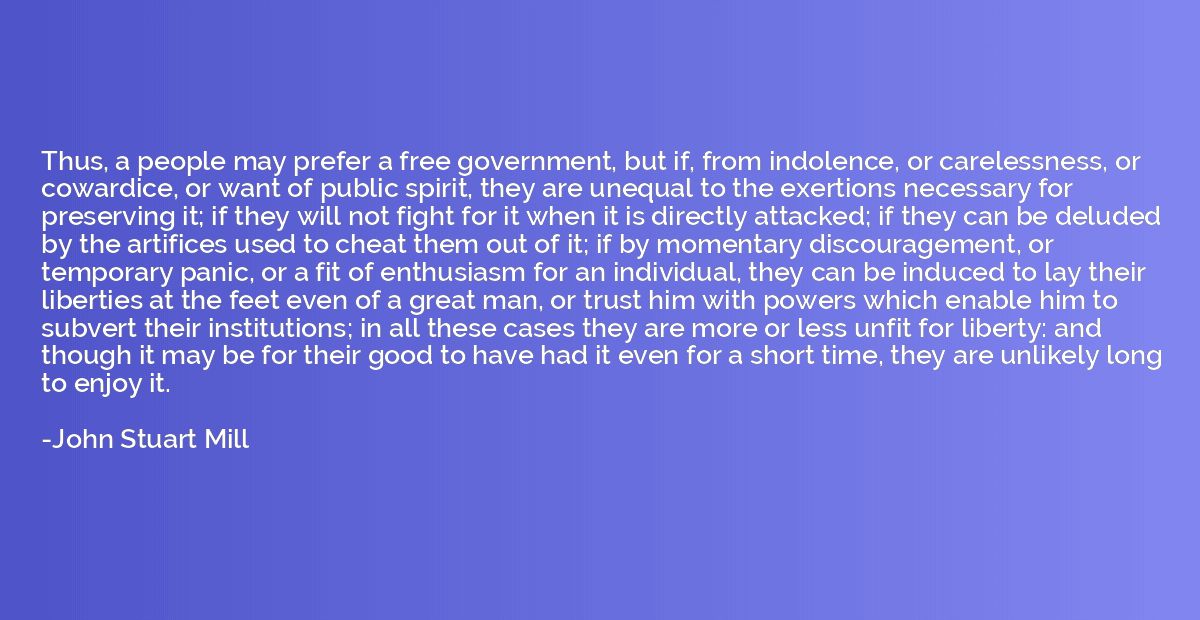John Stuart Mill Quotes
A collection of quotes by John Stuart Mill.
John Stuart Mill (1806-1873) was a prominent British philosopher, economist, and political theorist. Born in London, England, he was the eldest son of James Mill, an influential philosopher and economist himself. Mill received a rigorous education, instructed by his father in various subjects from a young age.
Mill's intellectual pursuits were diverse and encompassed many fields of study. He became known for his contributions to utilitarianism, an ethical theory that advocates maximizing happiness and minimizing suffering. Mill expanded upon this theory in his famous work, "Utilitarianism," where he refined and defended utilitarian principles.
Besides his philosophical endeavors, Mill made significant contributions to political economy. He argued for free markets, individual liberty, and social justice. His ideas greatly influenced the development of modern liberalism and contributed to the understanding of economic principles.
Mill also had an active role in politics and public life. He was a member of parliament and advocated for various reforms, such as expanding suffrage and improving the rights of women. Mill's commitment to individual freedom and democratic reform shaped his political career.
Throughout his life, Mill was an influential thinker who left an enduring legacy. His works continue to be studied and debated, and his ideas have had a profound impact on fields such as philosophy, economics, and political science.
